Updated on: January 18, 2024 09:54:14
With 450 delegates participating in the vote in favor (accounting for 91.28%), the National Assembly officially passed the Law on Credit Institutions (amended).
At the 5th Extraordinary Session on the morning of January 18, with a majority of votes in favor, the National Assembly passed the Law on Credit Institutions (amended).
Reporting to the National Assembly, Chairman of the Economic Committee Vu Hong Thanh said that at the 5th extraordinary session of the 15th National Assembly, the National Assembly discussed in the Hall the draft Law on Credit Institutions (amended).
Based on the opinions of National Assembly deputies, the National Assembly Standing Committee (NASC) has directed the agency in charge of the review, the drafting agency and relevant agencies to study, absorb and revise the draft Law to ensure prudence, thoroughness, and adherence to the requirements of restructuring and improving the capacity and efficiency of the credit institution system in accordance with the Party's policies and the National Assembly's resolutions.

The National Assembly passed the Law on Credit Institutions (Photo: Quochoi.vn)
On January 16, 2024, the Government issued report No. 18/BC-CP on opinions on receiving, explaining, and revising the draft Law.
Regarding some major issues of receiving, explaining and revising the draft Law, Chairman of the Economic Committee Vu Hong Thanh said that regarding some regulations related to handling cross-ownership, manipulation and domination of credit institutions (in Clause 24, Article 4, Article 63, Article 136), there are opinions suggesting to regulate related persons in accordance with the type of people's credit fund.
In response to the opinions of National Assembly Deputies, the draft Law has stipulated a narrower scope of related persons for people's credit funds compared to other types of credit institutions and is shown in Point h, Clause 24, Article 4 of the draft Law.
Some opinions say that the measures to reduce the share ownership ratio and credit limit have not solved the problem of cross-ownership, manipulation, and domination as in the recent past. The important thing is to monitor implementation.
The Standing Committee of the National Assembly agreed with the opinions of the National Assembly deputies that, in addition to the regulations on reducing the share ownership ratio, credit limits and a number of regulations on organization, administration and management, the draft Law has added regulations on providing and publicly disclosing information (Article 49), in which, shareholders owning 1% or more of the charter capital of a credit institution must provide information, and the credit institution must publicly disclose information of these shareholders to ensure transparency.
Regarding the insurance agency activities of credit institutions (in Article 5, Article 113), Chairman Vu Hong Thanh said that credit institutions, foreign bank branches, managers, operators, and employees of credit institutions and foreign bank branches must not associate the sale of insurance products with the provision of banking products and services in any form.
At the same time, the Governor of the State Bank is assigned to regulate the scope of insurance agency activities of credit institutions to suit the nature and operations of the banking sector.
Regarding early intervention in credit institutions (in Article 159, Article 161), there are opinions suggesting careful consideration of points a and b, Clause 2, Article 159 of the draft Law, which stipulates that credit institutions must clearly explain the amount of unset aside risk reserves and the amount of unallocated receivables and payables in the financial statements, including the publicly listed financial statements in the draft Law.
The Standing Committee of the National Assembly said that Article 154 of the draft Law stipulates the disclosure of financial statements in accordance with the law, except for credit institutions under special control. Therefore, based on the Government's proposal, the Standing Committee of the National Assembly would like to accept the opinions of National Assembly deputies in the direction of regulating the unset aside risk provisions and the unallocated interest receivables as stated in Point a and Point b, Clause 2, Article 159 of the draft Law.
Regarding the termination of early intervention, there are opinions that Article 161 should provide a unified regulation on the State Bank having a document to apply and terminate early intervention in the draft Law similar to the provisions in Clause 3, Article 130a of the current Law on Credit Institutions.
There are opinions suggesting keeping the regulation on early intervention as in the draft Law submitted to the National Assembly at the 6th Session or removing the regulation that the State Bank must have a written decision to end early intervention.
The Standing Committee of the National Assembly has revised Point a, Clause 1 and Point a, Clause 2, Article 161 in the direction that the State Bank shall issue a document terminating the implementation of the request document prescribed in Clause 2, Article 156 of this Law when the credit institution or foreign bank branch has overcome the situation leading to early intervention. The State Bank shall be responsible for monitoring, supervising and ensuring the status of the credit institution that has overcome the situation leading to early intervention.
Regarding special loans to people's credit funds (in Article 193), there is a proposal to remove the regulation that the State Bank decides on special loans to cooperative banks with an interest rate of 0%/year, without collateral for people's credit funds in the draft Law.
In response to the opinions of the National Assembly Deputies, the Standing Committee of the National Assembly revised Clause 2, Article 193 in the direction of regulating that cooperative banks decide to provide special loans to people's credit funds.
Regarding the handling of bad debts and collateral (in Chapter XII), taking into account the opinions of National Assembly Deputies, the National Assembly Standing Committee revised the provisions on the transfer of all or part of real estate projects as collateral to recover debt in Clause 3, Article 200 and on the transfer of all or part of real estate projects received as collateral before the effective date of this Law to recover debt in Clause 15, Article 210 of the draft Law.
According to PHAM DUY (VTC News)
Source






![[Photo] 60th Anniversary of the Founding of the Vietnam Association of Photographic Artists](/_next/image?url=https%3A%2F%2Fvphoto.vietnam.vn%2Fthumb%2F1200x675%2Fvietnam%2Fresource%2FIMAGE%2F2025%2F12%2F05%2F1764935864512_a1-bnd-0841-9740-jpg.webp&w=3840&q=75)
![[Photo] National Assembly Chairman Tran Thanh Man attends the VinFuture 2025 Award Ceremony](/_next/image?url=https%3A%2F%2Fvphoto.vietnam.vn%2Fthumb%2F1200x675%2Fvietnam%2Fresource%2FIMAGE%2F2025%2F12%2F05%2F1764951162416_2628509768338816493-6995-jpg.webp&w=3840&q=75)


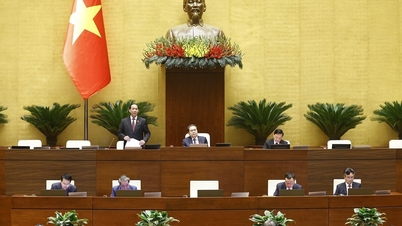

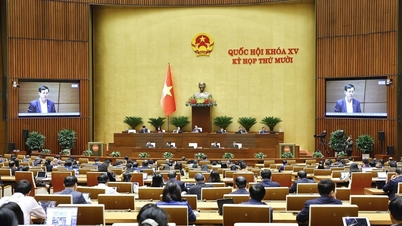
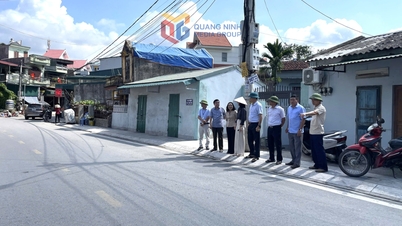
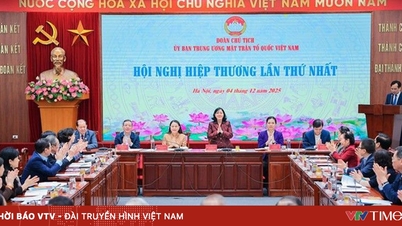

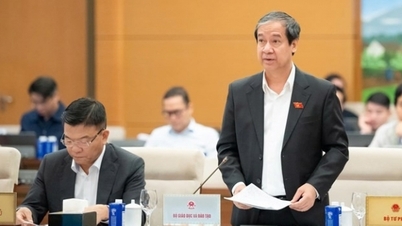

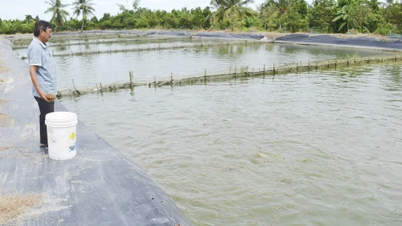




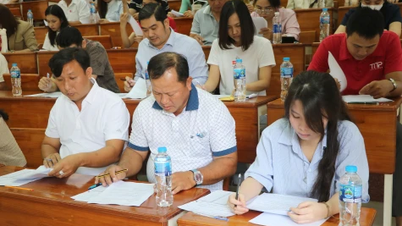
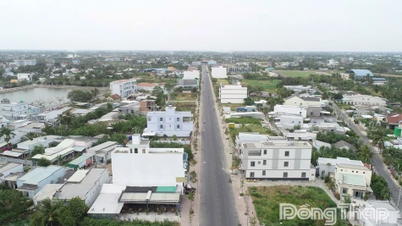









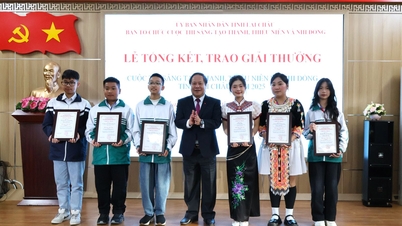


















































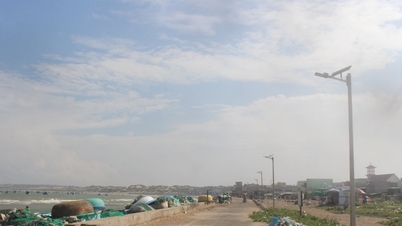























Comment (0)